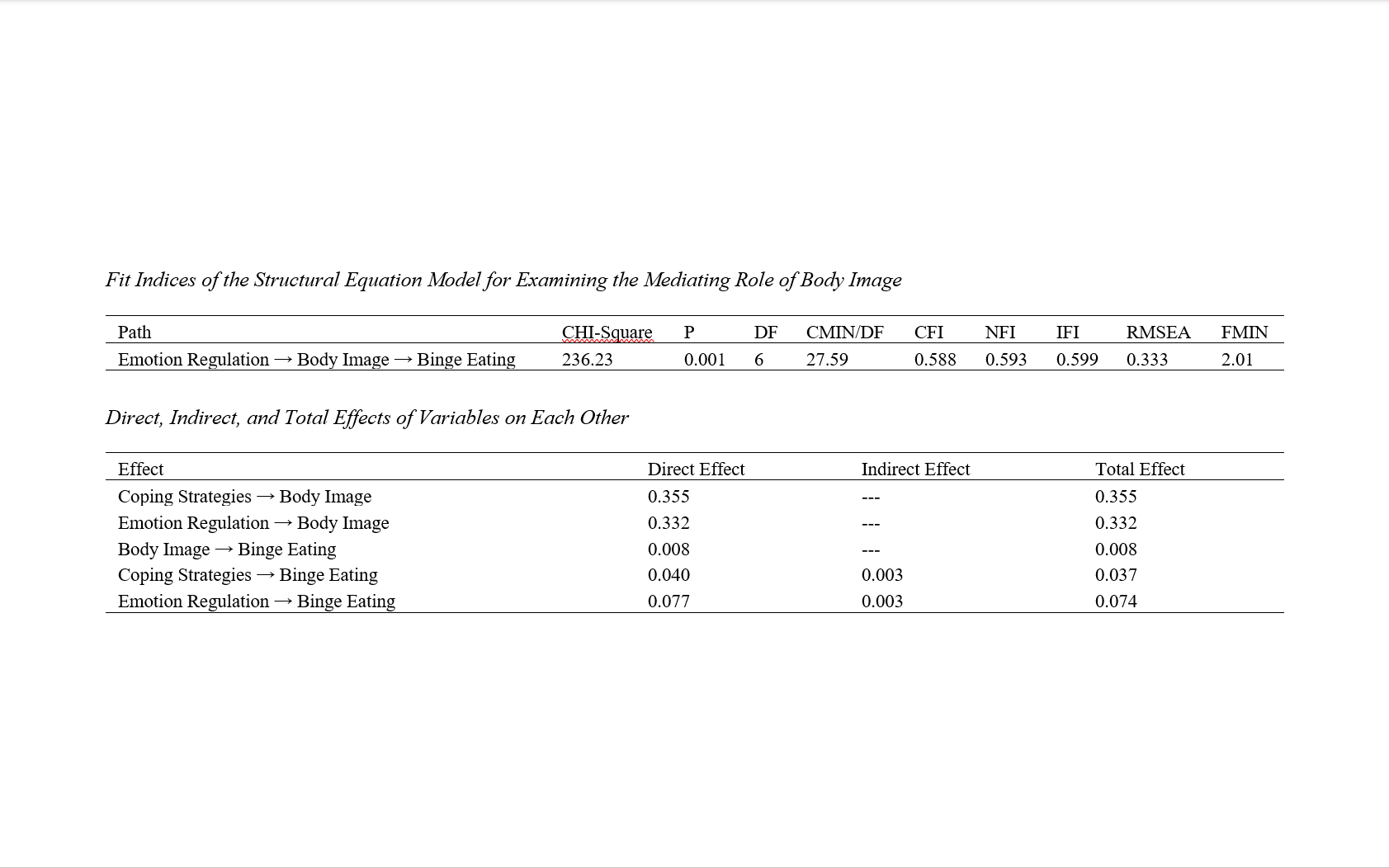The Mediating Role of Body Checking Behavior and Body Image in the Relationship Between Emotional Regulation and Coping Styles with Binge Eating Disorder in Women
Keywords:
Body-checking behaviors, body image, cognitive emotion regulation, coping styles, binge eating disorderAbstract
Objective: The aim of this study was to investigate the mediating role of body checking behavior and body image in the relationship between emotional regulation and coping styles with binge eating disorder.
Methods: The research design was a cross-sectional descriptive study of a correlational nature. The target population consisted of all women visiting clinics in Shiraz, and a sample of 200 women was selected using the convenience sampling method. The measurement tools used in this study included the Body Checking and Body Image Questionnaire, the Emotion Regulation Questionnaire, the Coping Styles Questionnaire, and the Binge Eating Disorder Scale. The obtained data were analyzed at both descriptive and inferential levels. In the descriptive section, indices such as mean, standard deviation, minimum, and maximum scores were calculated. At the inferential level, Pearson correlation coefficient and path analysis with structural equation modeling were conducted.
Findings: The results indicated that body checking behavior and body image, as mediating variables, create a significant relationship between emotional regulation and coping styles with binge eating disorder. Both emotional regulation and body checking behavior directly and indirectly predicted binge eating disorder. Additionally, coping styles, particularly problem-focused coping, helped reduce binge eating behaviors, whereas emotion-focused and avoidant coping styles had more negative effects on this disorder.
Conclusion: These results emphasize that body image and checking behaviors can increase body dissatisfaction and contribute to the persistence of binge eating disorder.
Downloads

Downloads
Additional Files
Published
Submitted
Revised
Accepted
Issue
Section
License
Copyright (c) 2024 Afsoon Yazdani (Author); Hossein Baghooli (Corresponding Author); Azarmidokht Rezaei, Majid Barzegar (Author)

This work is licensed under a Creative Commons Attribution-NonCommercial 4.0 International License.

















